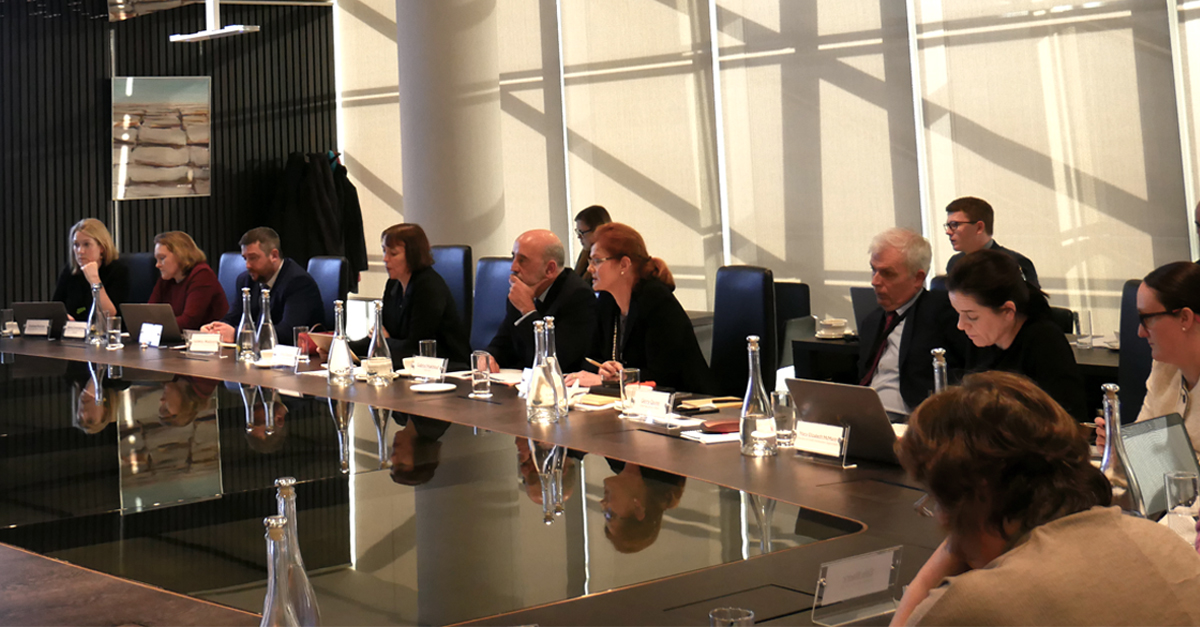Opening Remarks by Governor Gabriel Makhlouf at Civil Society Roundtable
29 November 2019
Speech

Opening remarks by Governor Gabriel Makhlouf
to Civil Society Roundtable
Welcome to the Central Bank of Ireland and to the 2019 Civil Society Roundtable. This is the third such event but of course the first one to be hosted by me.
The purpose of these roundtables is to communicate with our stakeholders, to build awareness of our mandate, to initiate discussion and to engage in a two-way exchange of views and information.
I am joined around the table by most of my senior team: Sharon Donnery, Deputy Governor for Central Banking; Derville Rowland, Director General for Financial Conduct and Gerry Quinn, Chief Operations Officer. We will be joined during the course of the day by additional staff from their respective areas.
All will be available to take questions.
This roundtable is, above all else, an opportunity to listen. I am now almost three months into my job and I have spent much of this time listening and learning - inside and outside the Central Bank– about the challenges as people see them. I visited Dundalk last month, the Ploughing Championships in Carlow in September and last week, I gave my first public speech in Waterford, to students at the Waterford Institute of Technology (WIT). The theme of that speech was of resilience, a topic to which we shall return today.
The plan for this afternoon is to have three sessions of about 45 minutes each, with a break for lunch between sessions two and three. Each session will have a brief presentation with the majority of the time allocated to discussion.
The subject of the first session is the Irish Economy. It begins with a brief presentation by Terry Quinn and Thomas Conefrey on the economic outlook, as set out in our most recently published forecasts, together with the associated risks and challenges. Risk and uncertainty are ever present in the outlook for our economy. Uniquely, the latest Central Bank Quarterly Bulletin presented two forecasts for the economy, one predicated on a Brexit deal and the other on a no-deal Brexit. The prospect of a disruptive no-deal Brexit has receded and the outlook for the year ahead at least is more in line with the more benign prospect of UK departure from the European Union on agreed terms. This relatively benign outlook, however, brings its own risks and challenges.
The recovery of the economy since the financial crisis has been remarkable. On the back of six years of sustained growth in employment and incomes we now face the challenge of managing an economy that is approaching full capacity and facing the risk of overheating. For the longer term, we need to build resilience in the economy to ensure we are capable of rising to the challenge of climate change, demographic ageing and technological change.
Following a short break for lunch, Deputy Governor Sharon Donnery will introduce a discussion of macroprudential policy with a presentation by Vasileios Madorous on the housing market and building resilience. Building resilience in households, in business, in the public finances and in the financial system is at the heart of the macroprudential policy of the Central Bank. Vas will focus specifically on the housing market and will, I hope, deepen our understanding of the rationale for policies such as the mortgage measures that guard against the credit-house price spirals of the past.
In the third session, Director General Derville Rowland will introduce some more of the work the Central Bank is doing to protect consumers and Seana Cunningham will talk about some of the recent enforcement outcomes.
Chatham house rules will apply to the discussion today, which, as I am sure you are aware, means that while participants are free to use information from our discussion, nothing should be attributed to any individual. In this spirit, the presentations and a general summary of the discussion, without attribution, will be posted on the Central Bank’s website in the coming weeks.